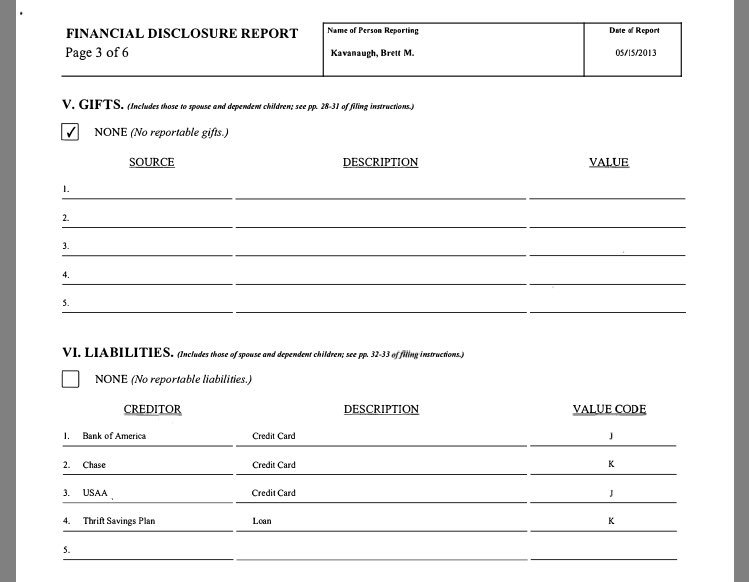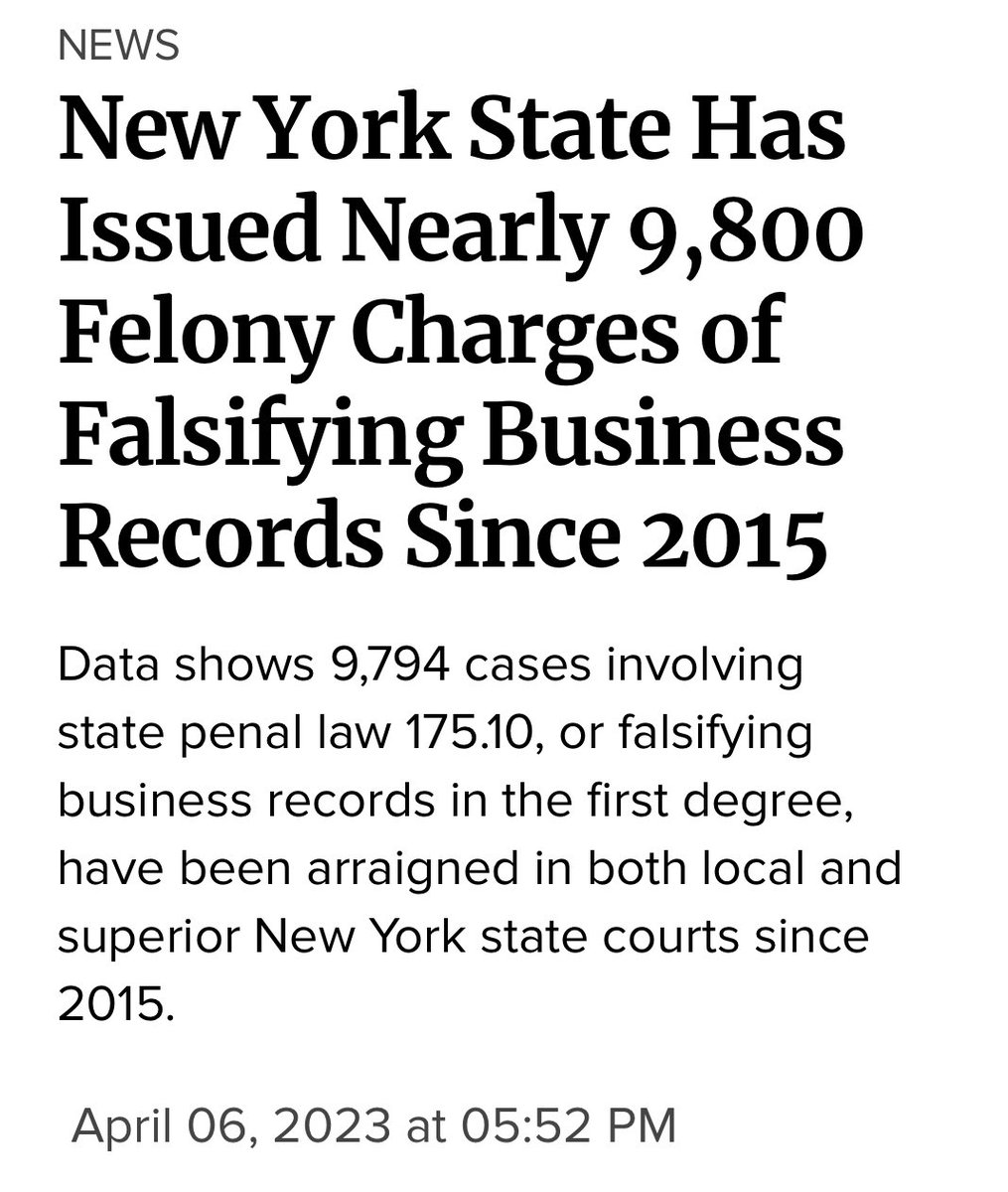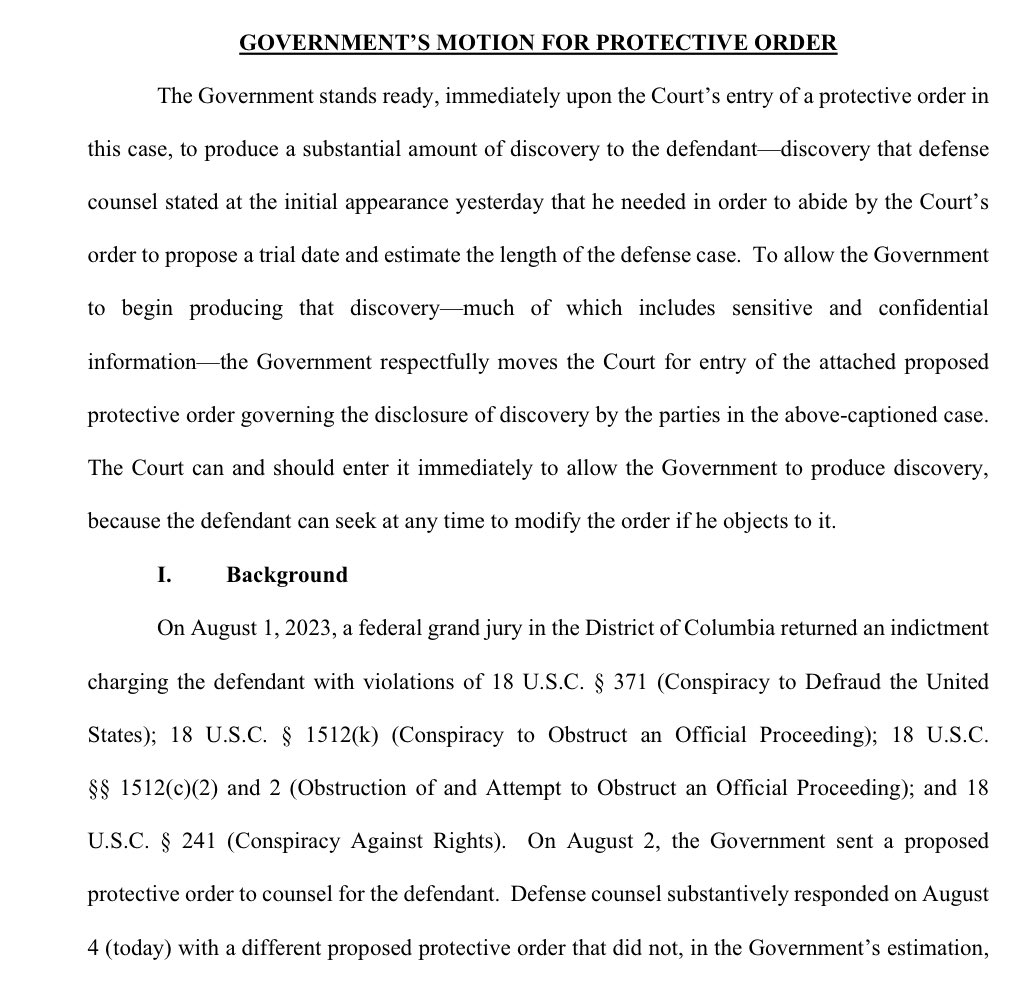So it’s been ten days and afaik we’ve gotten no more believable explanation for this...
https://twitter.com/nycsouthpaw/status/1017284473929551874
Okay let’s lay out some data. Here are all of Kavanaugh’s financial disclosures: fixthecourt.com/2018/07/bmk-fd…
And his liabilities statements for 2014-2017 (each is filed in May the following year; value code J = $15,000 or less, and value code K = $15,000-$50,000):



And his liabilities statements for 2014-2017 (each is filed in May the following year; value code J = $15,000 or less, and value code K = $15,000-$50,000):




2014: Kavanaugh has 1 credit card with a balance; it’s less than $15k.
2015: 2 cards with balances, each less than $15k.
2016: 3 cards with balances, each between $15k and $50k.
2017: The trend of escalating short term borrowing evaporates. all his credit card debt is gone.
2015: 2 cards with balances, each less than $15k.
2016: 3 cards with balances, each between $15k and $50k.
2017: The trend of escalating short term borrowing evaporates. all his credit card debt is gone.
Let’s look at the previous four years.
2010: 3 card balances, each <$15k
2011: 3 card balances, each <$15k
2012: 3 card balances, 2 of them <$15k and 1 between $15k - $50k
2013: 1 card balance between $15k - $50k



2010: 3 card balances, each <$15k
2011: 3 card balances, each <$15k
2012: 3 card balances, 2 of them <$15k and 1 between $15k - $50k
2013: 1 card balance between $15k - $50k




Think we need four more years? Let’s do four more years.
2006: 3 card balances, between $15k - $50k
2007: 3 card balances, between $15k - $50k
2008: 4 card balances, two <$15k and two between $15k - $50k
2009: 4 card balances, each <$15k



2006: 3 card balances, between $15k - $50k
2007: 3 card balances, between $15k - $50k
2008: 4 card balances, two <$15k and two between $15k - $50k
2009: 4 card balances, each <$15k




Kavanaugh had been spreading out what appears to have been a roller coaster balance of revolving debt across up to four credit cards from 2006 until 2016, presumably paying a ton of interest along the way. Then last year it all disappeared. Does that sound like a baseball story?
Another question: If Kavanaugh was in fact reimbursed for a large baseball-related expense (between $45k and $150k?) in 2017, shouldn’t that be reported in the 2017 report’s reimbursements section?
I don’t see it. fixthecourt.com/wp-content/upl…
I don’t see it. fixthecourt.com/wp-content/upl…

Here are some supplemental entries to the reimbursements section for the 2017 report, again showing nothing Nationals related.
Also notable, Kavanaugh says the $15k-50k TSP (Thrift Savings Plan) loan “has now been paid in full.” He has had that loan outstanding since 2006.
Also notable, Kavanaugh says the $15k-50k TSP (Thrift Savings Plan) loan “has now been paid in full.” He has had that loan outstanding since 2006.

According to guidance on the judiciary’s website, credit card debt isn’t required to be disclosed unless it exceeds $10k on a per account basis. So each of those “<$15k” credit card entries from Kavanaugh above likely represents at least a $10k liability. uscourts.gov/sites/default/… 

• • •
Missing some Tweet in this thread? You can try to
force a refresh













